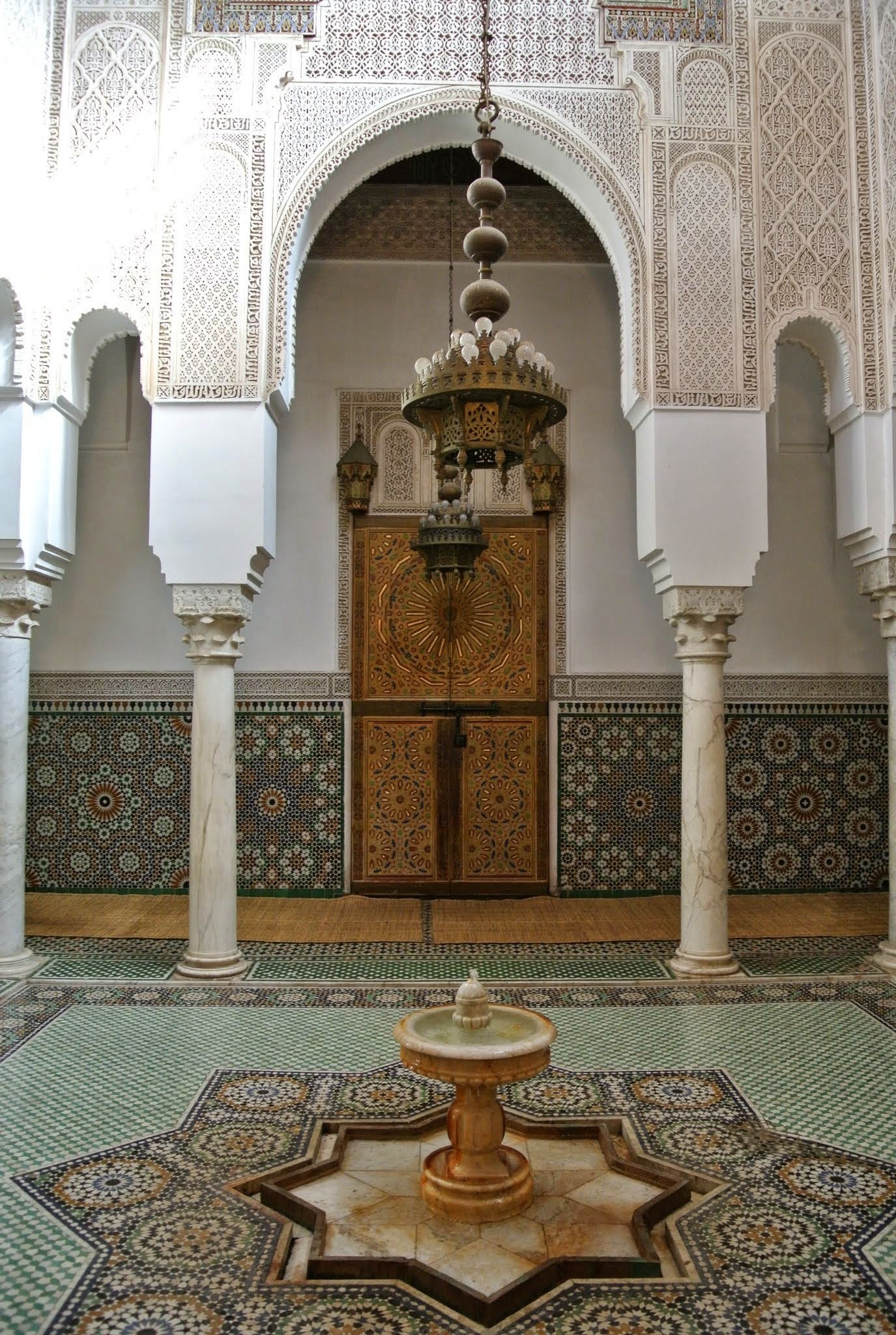The Mausoleum of Moulay Ismail
Deep within the labyrinthine medina of Meknes, Morocco, lies a haven of tranquil beauty—the Mausoleum of Moulay Ismail. More than just a final resting place for a powerful sultan, this exquisite complex whispers tales of cultural heritage, artistic mastery, and unwavering faith, captivating visitors with its harmonious blend of history and serenity.
Stepping through the intricately carved cedarwood gate, the clamor of the bustling medina fades. Sunlight filters through stained glass windows, painting kaleidoscopic patterns on the cool marble floor. The air resonates with a hushed reverence, inviting quiet contemplation as visitors move with respect amidst the architectural splendor.
Constructed in the 17th century after Sultan Moulay Ismail's reign, the Mausoleum serves as a vibrant tribute to his legacy. It's not merely a memorial; it's a testament to the cultural and artistic heritage of Morocco, showcasing the skill and dedication of generations of artisans.
The mausoleum's central chamber, bathed in an ethereal light emanating from a shimmering onyx canopy, houses the cenotaph of Moulay Ismail. This symbolic tomb, crafted from white onyx, stands resplendent in its simplicity, its smooth surface reflecting the reverence held for the late king.
Surrounding the central chamber lie the sarcophagi of his sons, Prince Moulay Abdallah and King Hassan II. Each chamber boasts its own unique character, adorned with intricate zellige tilework in vibrant colors and geometric patterns. These mosaics, meticulously hand-cut and assembled, depict mesmerizing floral motifs and Quranic verses, each tile a testament to the painstaking work of master craftsmen.
Beyond its stunning aesthetics, the Mausoleum reflects the profound cultural and religious beliefs of Morocco. The use of water fountains and courtyards reflects the importance of purity and serenity in Islamic tradition. The geometric patterns, meticulously arranged, are believed to hold mystical significance, connecting the earthly realm to the spiritual.
Sunlight streaming through the handcrafted cedarwood ceilings, intricately adorned with Quranic verses in gold leaf, further emphasizes the connection between earthly beauty and divine inspiration. Every detail, from the carved stucco decorations to the hand-painted calligraphy, echoes the deep spirituality that permeates Moroccan culture.
Today, the Mausoleum of Moulay Ismail stands as a beacon of peace and reflection amidst the urban hustle of Meknes. Its serene atmosphere invites visitors to lose themselves in the beauty of traditional craftsmanship, ponder the legacies of kings, and appreciate the enduring power of faith and artistic expression.
Stepping into this hallowed space is a transformative experience. The whispers of history mingle with the scent of incense, transporting visitors to a timeless realm where devotion and artistry unite. It's a place to contemplate the fleeting nature of earthly power and the enduring beauty of human creation.













